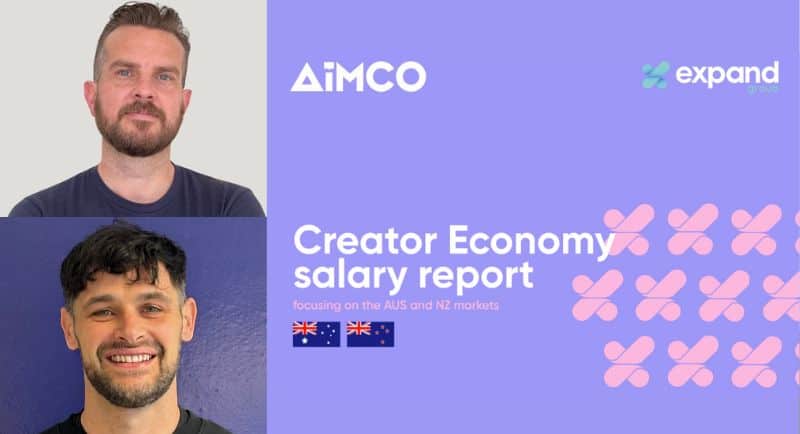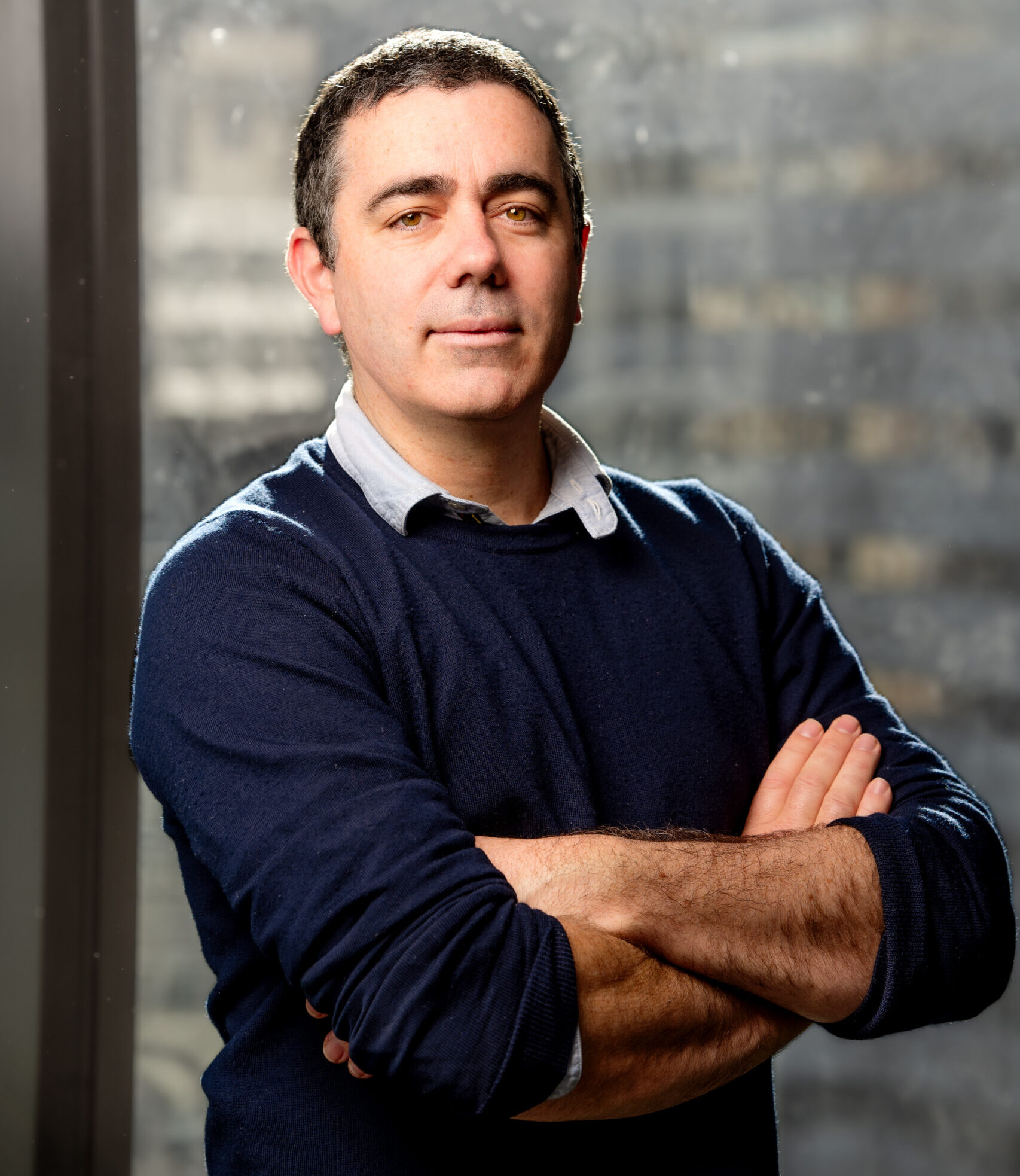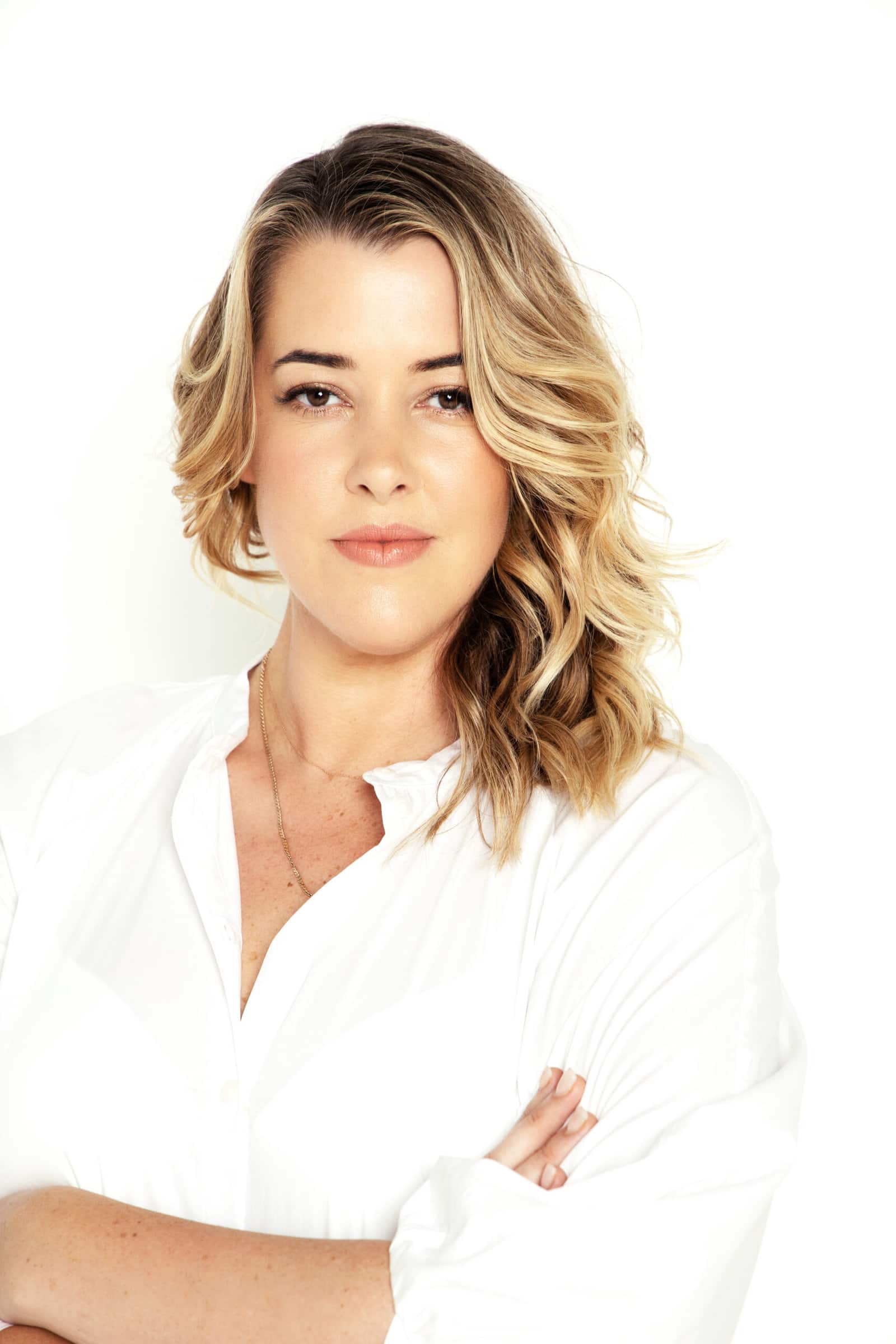AiMCO’s recently-released ‘creator economy salary report’ reflects the maturity of the influencer industry across Australia and New Zealand, and responds to a post-COVID environment in which salary expectations have dramatically increased, according to managing director Patrick Whitnall and key execs.
Whitnall told Mediaweek that it serves as a guideline for creators, talent agencies, and brands rather than regulation. “For us, this is a marker in the sand to give an open, honest, and transparent look at the types of roles and salaries based on the different roles people are looking at,” he said.
“The market is the market, and at the end of the day, a talent and a business will always be guided by what they need and if the talent is interested in that role. That will come down to market conditions and the talent wanting to move.
“I get that people sometimes pay more than the guidelines. That’s entirely up to them and their informed business decisions. This [the guidelines] is here to start the conversation. It’s not a way of holding people accountable to one way because everyone’s guided by market conditions.”
Since the report’s release, AiMCO council members have responded positively.
Among them, Ben Gunn, chief revenue officer of Fabulate, told Mediaweek: “We welcome any move that helps give greater credence to the sector, including this new report from AiMCO and Expand Group.
“From a talent perspective, we know that great talent is already seeking out the creator economy. We expect that interest will grow as marketers and brands realise the power and ROI of adding creator-led content to their campaigns.”
Clare Winterbourn, founder of Born Bred Talent, also told Mediaweek that the guidelines will be “immensely beneficial for numerous businesses” across Australia, but particularly New Zealand, where she noted that resources are comparatively limited to the Australian market.
She said the guidelines will significantly impact how the industry operates, especially in a post-COVID environment where salary expectations have substantially increased, particularly from individuals entering the influencer marketing and management space.
“Unfortunately, many lacked the necessary experience and skill set to justify such demands. This led to inflated salary expectations and industry inconsistencies,” Winterbourn added.
Winterbourn shared that Born Bred Talent already developed its own internal benchmarks and hiring guides based on earned skill sets and learned experiences; her agency is open to incorporating the AiMCO guidelines into its existing framework to ensure alignment with industry standards and best practices.
She added that AiMCO’s report is a step in the right direction, but more emphasis needs to be placed on transparency and accountability within the industry, particularly on pricing structures and client-agency relationships.
“Additionally, continued updates and refinement of the guidelines to adapt to the evolving landscape of influencer marketing would be invaluable,” Winterbourn added.
Jamie Taylor, head of digital integration for Havas Media Network Australia, told Mediaweek the AiMCO Salary Benchmarking report is something the industry has been calling out for to foster transparency in the industry and help build an element of standardisation which he said was “previously lacking.”
“Plus, who doesn’t want to know where they sit in comparison to their peers?!” he added.
Whitnall noted that more will be done to expand this first iteration. He said that the council aims to delve deeper into the data next year to provide more value to members by exploring diversity, location, and roles.
The report was created in partnership with recruitment and business agency The Expand Group, which has worked on benchmark reports for the UK, US, LatAM, and Canadian markets.
Expand Group’s director of social and esports, Dan Openshaw, told Mediaweek that the influencer market in Australia and New Zealand is booming, fuelled by a growing digital landscape and savvy consumers. He noted that such growth brings challenges in talent acquisition and retention.
“This is why we feel that salary benchmarking is crucial for the region and the industry. It’s definitely a growing market with amazing players coming out of Australia and New Zealand.
“Compared to America and the UK, Australia and New Zealand are still a good 18 months behind. But I think it’s one of the most exciting markets out there.”
For Whitnall, establishing the benchmarking guideline indicates the growth and maturity of the market.
“It tells us that we are now at a point where a number of businesses are seriously investing in talent and people, not just in the sense of businesses that are purely focused on influencers as a key part of their business.
“We’re starting to see more marketers, brands, and businesses understand the value of influencer marketing within their ecosystem and marketing. That means they’re now investing in the need to bring that type of expertise, talent, and skill set into their business.”
Openshaw agreed and added that the industry has gone from strength to strength.
“Everyone laughed when I told them about this industry 10 years ago. But now, no one’s laughing; brands use them because they’re influential. Now, it’s one of the first places marketers go when looking to drive products and consumer behaviour.”
See also: AiMCO lifts the lid on industry-first salary benchmarking guidelines
–
Top image: Above, Patrick Whitnall
Below: Dan Openshaw




